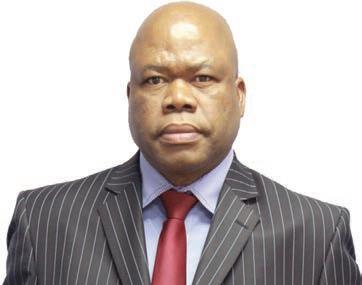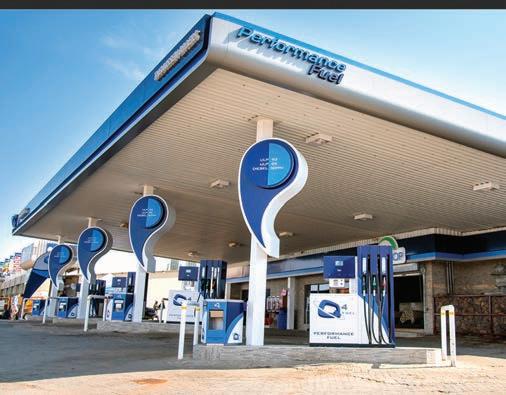
3 minute read
PETROL STATIONS
Fuel for thought
Opening a petrol station is not for the faint of heart. JAMES FRANCIS looks at the ins and outs of such a venture
Petrol stations can be very resilient investments. Even in the tough economic conditions preceding COVID-19, the industry was offering healthy yields, leading some to call the industry recession-proof. It is a fact that, come rain or shine, people need fuel. But as if to balance this advantage, opening a fuel station is not a cheap or quickly realised opportunity.
“Most people think that when they have a piece of land they can build a service station,” says Reggie Sibiya, CEO of the Fuel Retailers Association. “But there are many regulations that need to be fulfi lled before building a service station. The process may take fi ve years or more.”
There are two distinct paths: one is via a franchise and the other is a dealer-owner station. Costs vary, but the cheapest options emerge at franchise level. A station also needs considerable running capital – often more than R1-million a month – and a steady, disciplined managing culture, including staff training.
Reggie Sibiya
Fuel is the overwhelming revenue stream at a petrol station. Among South Africa’s more than 4 600 stations, up to 80 per cent of their revenue comes from the pumps. Yet it’s a volatile revenue stream, as the margins are set in speci c numbers and not relative to fuel-price changes. So even if the price of fuel goes up, station owners don’t make more pro t, says Sbonelo Mbatha, director and co-founder of PetroCONNECT.
“The margin on fuel is typically about 10 per cent. Price uctuations have a huge impact on petrol stations. Contrary to what many people think, higher petrol prices hurt petrol station businesses.” Reasons for this include fees from card charges, lower volumes at high prices (motorists typically order fuel by the rand and not the
WEIGHING THE OPTIONS
Franchise sites do much of the legwork, particularly regulatory and zoning requirements. But the franchisor maintains ownership of the station and property, while the franchisee buys into a lease to run the site, which could be revoked for one of several reasons.
“There are a number of regulations that need to be fulfilled before building a service station.” – Reggie Sibiya, CEO, Fuel Retailers Association
On the other hand, a dealer-owned station needs to run a gauntlet of approvals, including nearby rivals opposing it, and a station can take at least two years to build from scratch at signifi cantly monthly costs. But in return, such a site avoids franchise fees, doesn’t need franchise approval to try new things, and gets a litre), and crime such as leaving without paying. Such conditions can severely stretch working capital. To hedge their bets, stations are adding extra retail options such as convenience stores, food and beverage outlets, and car washes.
Emerging choices include workshops, car and trailer hire, laundry services, courier delivery spots, and electric vehicle charging facilities. The Fuel Retailers Association notes that such services can be pro table, but are also often loss-leaders that attract more clients to the fuel portion of the station. Additions typically piggyback on franchising partners: a fuel franchise will
Q4 petrol station, Morokeng, North West

Q4 ENTERS THE MARKET
Q4 is one of the newer players in the lling station market. It was licensed in 2006 as a wholesaler and launched its rst lling station around a decade later. According to Q4’s retail manager, Johan Marais, there are currently 20 stations across the country, including three diesel depots, built on a franchising model.
much larger portion of the Regulatory Accounts System (RAS), a guideline that benchmarks the operating costs of a petrol station. Owners of assets that require capital investment tend to get the most benefi t from RAS.
DID YOU KNOW? Entry prices for a franchise petrol station start at around R2-million, though typically a station can cost between R8-million and R12-million.
More than just fuel
Source: Fuel Retailers Association
have certain brands with which it works. Whoever has the lease for the franchise site is limited to those choices, yet might enter into separate agreements with them, albeit with the franchisor’s support and blessing. At larger sites, the station portion may have nothing to do with the other stores.
Dealer-owned stations have more barriers to overcome, but they can partner with any brand, including sharing premises with other businesses, regulations pending, and don’t need permission from a franchisor. This can offset the costs of the station and help the dealer own capital assets – a signi cant pipeline to greater pro ts.









